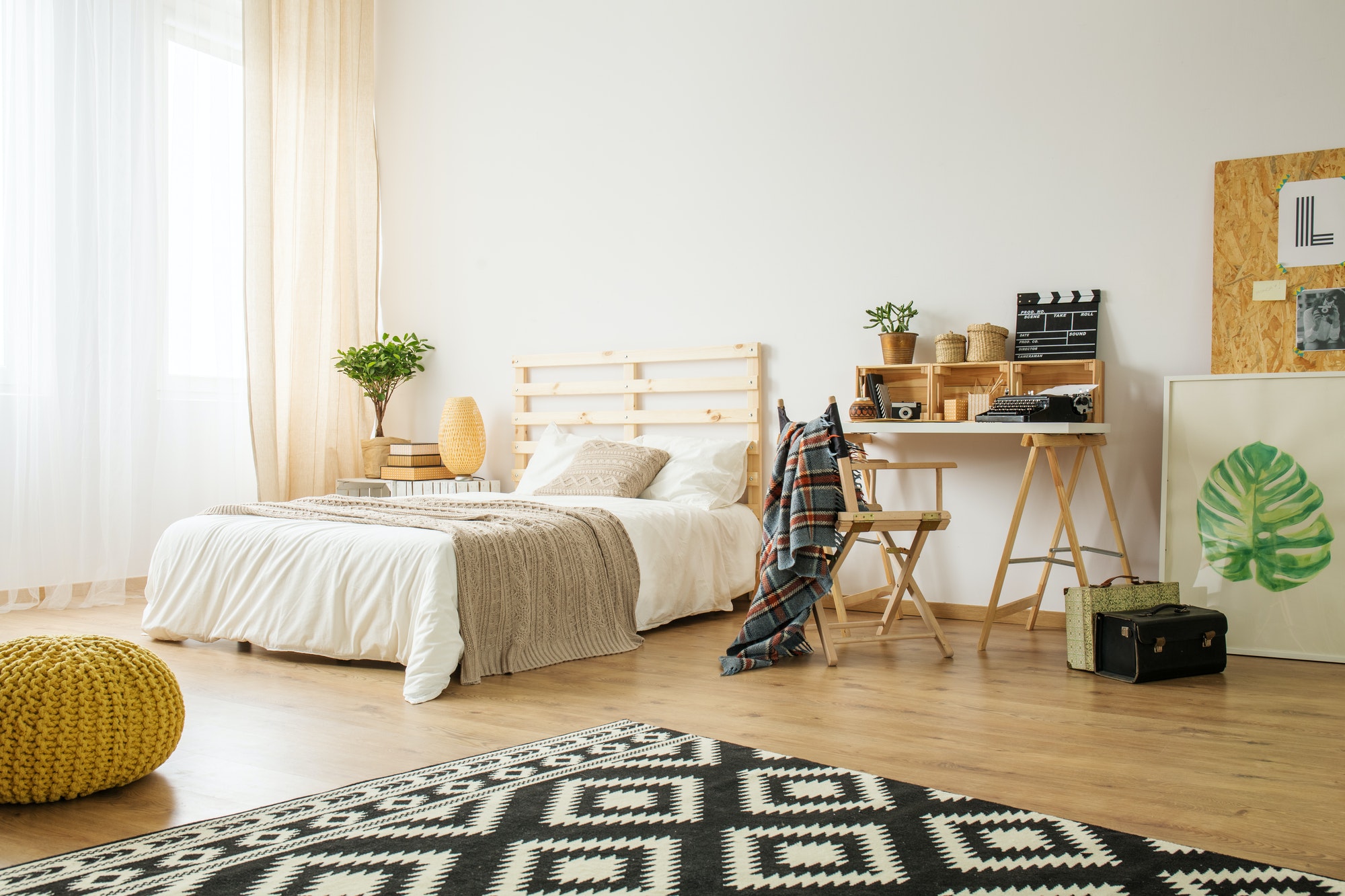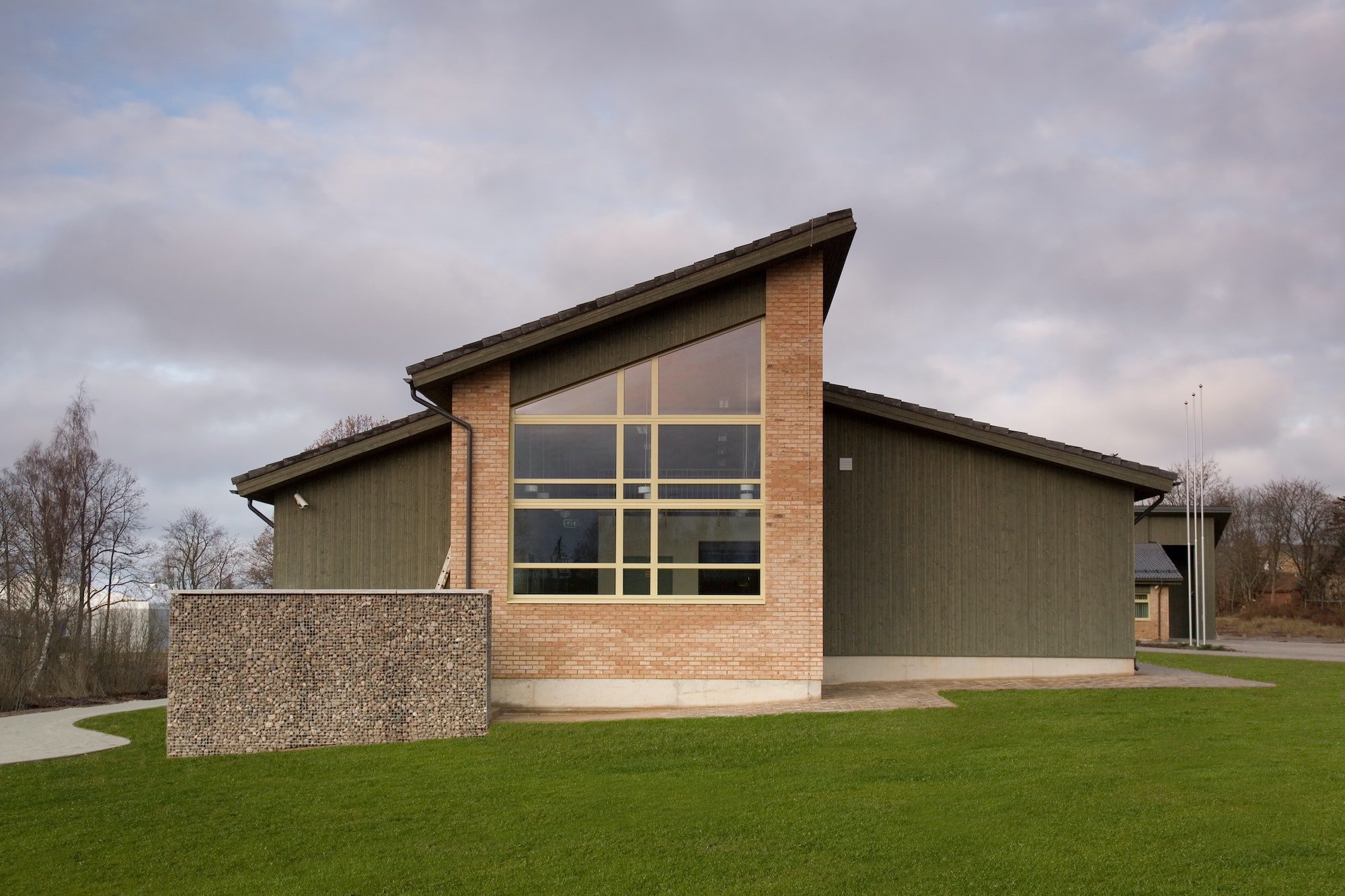As the place where you spend much of your time at home, your bedroom should offer a peaceful retreat at the end of each day that welcomes you. Yet, many people do not focus on the design of their bedroom or use it as a place of storage, often creating a stressful and cramped environment.
Creating a minimalist and stress-free environment for your bedroom is crucial for your mental and physical health and wellbeing. Below, we’ll take a look at 5 architect’s principles when designing a bedroom.
Lighting
Lighting is a crucial element in your bedroom and can impact the quality of your sleep. Our bodies know when to sleep and wake up thanks to our internal circadian rhythm, which is governed by the natural light cycles.
As such, it’s important to choose a room which lets in plenty of natural light. This could be from big windows or even a skylight that lets in the sunlight each morning. It’s also important to be able to block out the light in the evening so nothing keeps you from sleeping or interrupts your slumber. Consider investing in curtains or blinds that block out enough light but also allow sunlight to enter the room in the morning.
Storage
Clever storage design is key to keeping your bedroom minimalist, tidy and stress-free. Your bedroom should be a place you can retreat to at the end of the day to wind down and relax. As such, fitted wardrobes are great for making the most of your bedroom space.
Additionally, if you’re short on space then multi-purpose furniture can be a great option. The Divan Beds Centre offers a great range of multi-purpose furniture like beds that lift up for storage space.
Keeping a Single Purpose in Mind
When designing your bedroom, think about what it should be used for. Many people make the mistake of making their bedroom a multi-functional sleeping, office, dressing and entertainment space which can make it difficult to drift off in the evening.
Try to make your bedroom a sleeping space only, leaving out the TV on the wall or the desk in the corner of the room. When a multi=functional space becomes a necessity; as many of us have found with working from home, try to create a space that can easily be cleared away when evening comes around. There are many fold-up desks around that allow you to store away your work equipment at the end of the day so you can unwind.
Placement of Furniture
The way you place your furniture in the bedroom can be a recipe for a good night’s sleep or a recipe for disaster. Below are some top tips for organizing your bedroom furniture –
- Only use necessary furniture to avoid culture
- Place the largest furniture first
- Place the rug under the lower two-thirds of the bed
- Design your bedroom by function
Bring the Outside in
Incorporating nature into your bedroom space could make a world of difference when it comes to getting a good night’s sleep. Start off small by adding plants to your room, as well as natural colors that reflect nature like light and dark green and earthy tones.
If your room is lacking in natural light, try adding some mirrors to bounce natural light around the room.
Overall, the design of your bedroom is incredibly important and can determine your health and wellbeing when it comes to getting a good night’s sleep. By following the above architect’s tips, you’ll be sure to create both a functional and relaxing space where you can retreat after a long day.
Discover more from Futurist Architecture
Subscribe to get the latest posts sent to your email.




